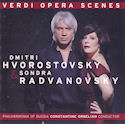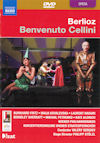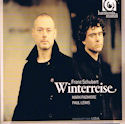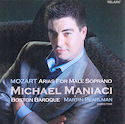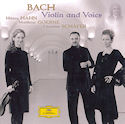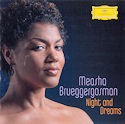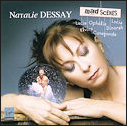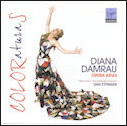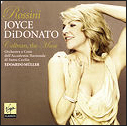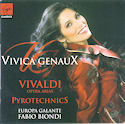Wagner - Gotterdammerung - Schmittberg; Hoff; Mowes; Meszar; Foster; Weissmann; Staatskapelle Weimar; Carl St. Clair
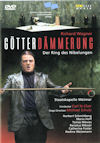 Wagner - Gotterdammerung
Wagner - Gotterdammerung
Schmittberg; Hoff; Mowes; Meszar; Foster; Weissmann; Staatskapelle Weimar; Carl St. Clair
ArtHaus Music 101 359
The last, cataclysmic instalment of Wagner’s monumental Ring cycle from Weimar is very much a vision of the director, Michael Schultz. His strong philosophy is most manifest here where his pessimistic views are aided by the apocalyptic story. “There are tears in the world/as though God had died…” The grief is never ending.
To the cruelty and murder so prevalent in the drama the director adds his own issues: cruelty to women and even to defenceless animals. The 2nd act turns into a pandemonium of mass rape by the Gibichung thugs (reminding us of British soccer hooligans). Brunnhilde’s horse Grane is portrayed by a pantomime actress with flowing white hair much abused throughout by Hagen and the adolescents also added to the production. The Director believes that children of the world are cast out, helpless therefore aggressive. They witness all major turns of event but are unable to participate and move around in curiosity, with blood-stained hands.
Difficult to describe this theatrical experience with words, one really has to see how powerfully it’s handled by sparse visual means. Stage background is black throughout; there are virtually no sets and lighting plays a prominent role. So memorable to see Siegfried tenderly mourned by Grane, the long suffering horse and at the final scene water is cascading from above over the abused women, who are reborn & cleansed by Brunnhilde’s self sacrifice and redemption.
Young American conductor Carl St. Clair keeps tight control and never lets the tension sag. The cast is very strong. Renatus Meszar as Hagen, is a formidable presence and even more formidable voice. Catherine Foster easily conquers the endurance test of Brunnhilde’s role. Siegfried, Norbert Schmittberg, is treated as a vulnerable, somewhat naïve plaything for the evil Gibichung, a fine choice for not being the typical beefcake Wagner tenor. Gunther, portrayed as weak and somewhat tragicomic, is sung and acted wonderfully by Mario Hoff. Great theatre, this is a moving production that will give you food for thought.


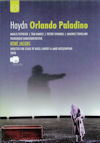 Haydn - Orlando Paladino
Haydn - Orlando Paladino